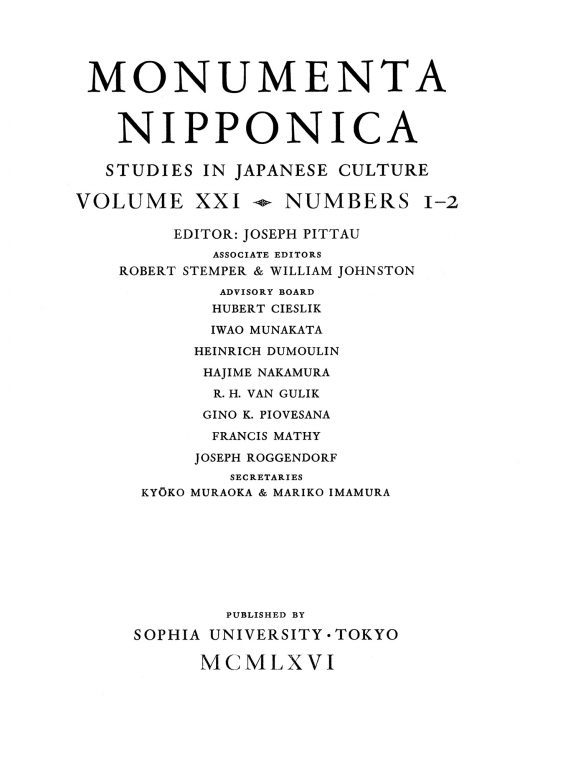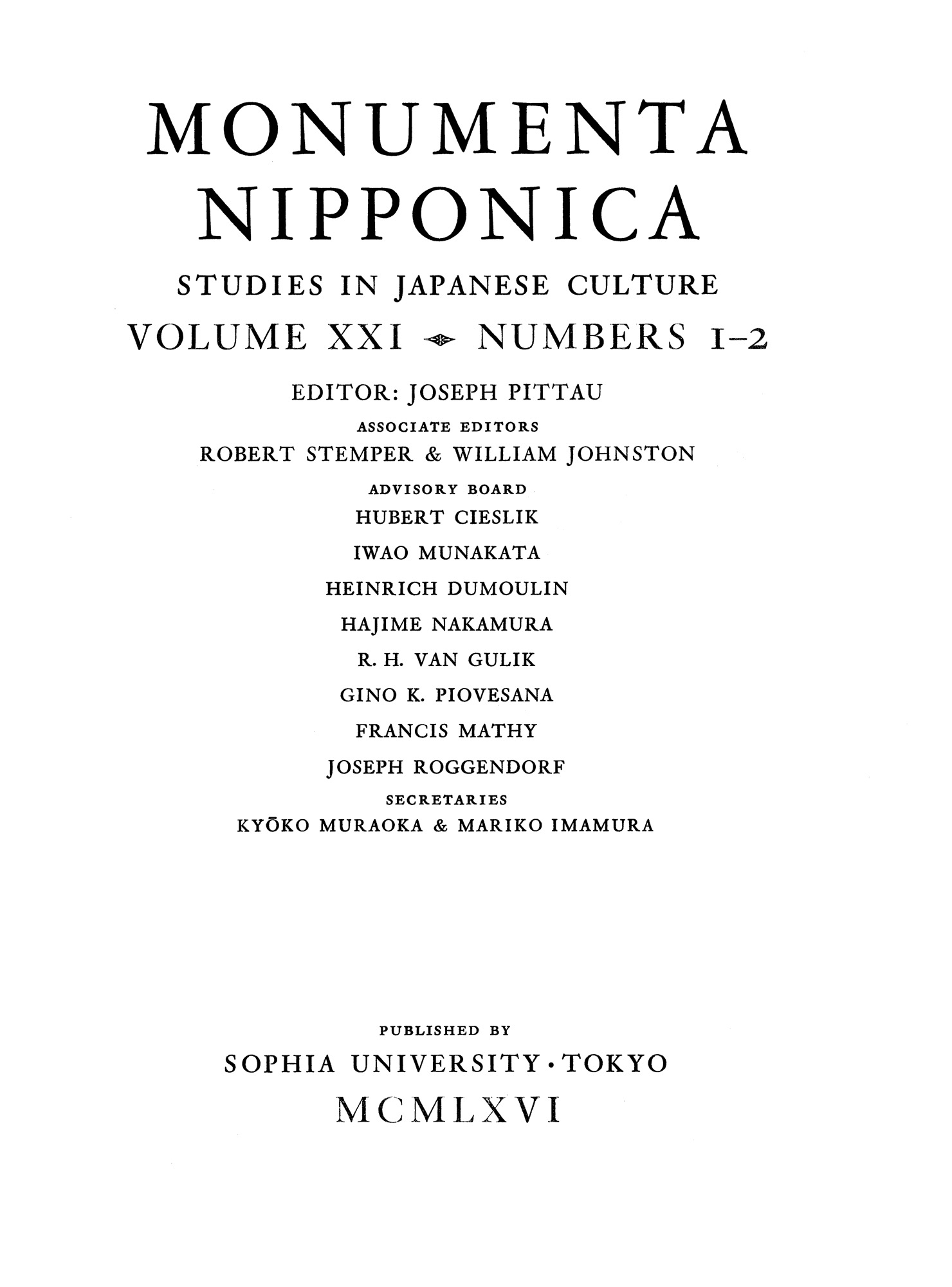Japanese Management: The Cultural BackgroundWilliam H. Brown
MN 21:1/2 (1966) pp. 47–60
Since the end of the Pacific War the “modernization” of Japanese ways of life has emerged as a national goal. One expression of this ideal can be found in the efforts to rationalize the management practices of large and small businesses. During recent months, under the stimulation of the “technical revolution” taking place in production methods and the increasing integration of Japan into the international economy, the problem of rationalization has become a major concern of both government and industry. Journalists have been particularly vigorous in their castigation of the “feudalistic” and “premodern” characteristics of personnel administration. Words like “familism” and “paternalism” have become epithets stigmatizing those elements in Japanese human relations sanctioned by traditional manage. ment practices. It is widely assumed that these traditional patterns of work-relationships constitute an intolerable obstacle to the rationalization of the economy and a serious impediment to economic growth. In reaction to this attitude some students of the situation have taken a more “realistic” approach and advocated a compromise between the ideal of rationalization and the more intractable elements of Japanese society rooted in a long tradition. In this paper I would like to present an aspect of the situation from a position somewheie between these two points of view. I do not wish to deny that there are some features of present management practices which indeed present obstacles to the goals of economic growth and international competition which Japan has necessarily set herself. Nor on the other hand do I reject the view that some features cannot be changed but must be accepted and put up with. I rather prefer to center my attention on those elements of Japanese social relations which actually have proved quite “rational” in the past and promise to do so in the future. In the course of consideration I will take up those features of Japanese managerial practices which have been most severely criticised and I will investigate the two systems alleged as their causes, the promotion system and the lifetime employment system. Then I shall present some features which seem to have been overlooked in the criticism of Japanese management. The paper concludes with a sketch of what I believe to be important cultural and ethical
roots of the Japanese approach to work.

